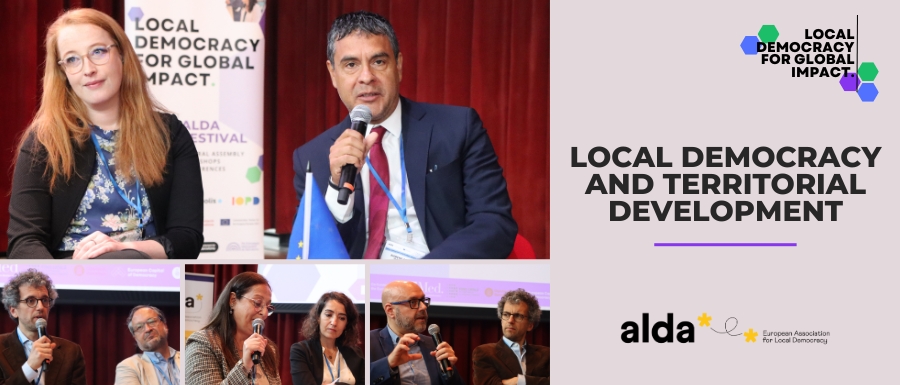The Territorial Approach for Local Development (TALD) is a comprehensive policy framework that emphasises endogenous, integrated, multi-scalar, and incremental local development. This approach underpins the European Union’s cooperation with partner countries globally, fostering a broad spectrum of decentralised cooperation among cities, civil society organisations, private actors, and other key stakeholders. This multifaceted cooperation reveals both concrete opportunities and challenges that must be navigated to advance within a constructive and resilient framework, especially in light of the new Global Gateway initiative.
The Diputació de Barcelona stands out for its longstanding experience in development cooperation, notably with Latin America. Over the years, it has continuously innovated to achieve greater impact, partly through the leadership of its Observatory for Decentralised Cooperation. However, the rapidly evolving geopolitical landscape and the erosion of the rule of law and democracy in many partner countries present significant hurdles for subnational governments striving for effective cooperation.
In these challenging times, TALD offers a pragmatic and inclusive approach to development that deserves recognition. Its potential to strengthen weak democratic structures through innovative governance and stakeholder engagement is notable. Initiated by the Congress of Local and Regional Authorities of the Council of Europe, the Local Democracy Agencies have effectively implemented methodologies aligned with TALD, promoting civic engagement and mobilising community and private sector resources for local development.
Despite the clear benefits, there are still unresolved issues that prevent territorial actors from fully leveraging their potential in sustainable development. The vast heritage of decentralised cooperation is often underestimated, its impact not deeply analysed, and its value not easily communicated to citizens. Yet, when integrated and connected with other cooperation programmes, decentralised cooperation can be a powerful modality, involving all actors and fostering inclusive development.
Roundtable Discussion: Key Themes and Speakers
To delve deeper into these issues, a roundtable co-organised by ALDA, DG-INTPA, the TALD Facility, and the Diputació de Barcelona was held on May 15, 2024, in Barcelona, Spain. This event took place within the framework of the ALDA Festival and General Assembly 2024, aiming to explore and contribute to the debate on current key issues. The discussion focused on the construction and maintenance of multi-stakeholder networks, emphasising collaboration between local and global actors. This requires activating “territorial intelligence,” which leverages indigenous knowledge, practices, and experiences, and utilises a variety of territorial resources—human, material, social, economic, natural, and cultural.
The panel was opened by Rita Biconne, Head of the Project Implementation Unit of ALDA, who introduced the topic and presented the speakers to the audience.
Franziska Gehrmann, Seconded Expert at the Directorate-General for International Partnerships (DG-INTPA) G2, opened the panellist session, setting the stage for an in-depth exploration of TALD.
Eugene Zapata Garesché, Team Leader of the TALD Facility, provided an introduction to TALD, outlining its core principles and its significance in contemporary development cooperation.
Jean Bossuyt, Team Leader of the Partnership for Sustainable Cities, presented an upcoming study on “Decentralised Cooperation and Local Democracy,” highlighting how TALD can reinforce democratic governance and sustainable development.
Francisco Sarmento, Responsible for Territorial Development at FAO, discussed the “White Paper on Territorial Approaches for Sustainable Development,” offering insights into how territorial approaches can drive sustainable growth.
The roundtable featured a diverse panel of speakers who shared their experiences and insights:
- Octavio de La Varga Mas, International Strategic Projects Advisor for Diputació de Barcelona, highlighted the work of the Observatory of Decentralised Cooperation, showcasing innovative practices from Barcelona’s extensive cooperation with Latin America.
- Virginie Rouquette, Directrice générale of Cités Unies France, discussed the role of cities in fostering decentralised cooperation and the importance of multi-stakeholder networks.
- Afaf Zaddem, Director of the Local Democracy Agency in Kairouan, Tunisia, shared experiences from the ground, emphasising the importance of local democracy and civic engagement.
- Stefano Rossi from the Centro di Cooperazione Internazionale Trento presented the REBUILD project, which focuses on decentralised cooperation between the EU and Libya.
- Anzhelika Pylypenko, Director of the Local Democracy Agency of Dnipropetrovsk Region, discussed the challenges and successes of local democracy initiatives in Ukraine.
Discussion Highlights
Key questions addressed included:
- How to ensure the trust and commitment of citizens and stakeholders?
- What are the essential ingredients for a multi-actor, people-centered approach?
- How can experiences from the ground inform these approaches?
- How to address fragile contexts and leverage TALD and local authority cooperation as elements of resilience in democracy support and local development?
This session featured a moderated discussion where speakers and the audience interacted, sharing experiences and contributing to the debate. By examining these questions and sharing practical insights, the roundtable aimed to foster a deeper understanding of TALD’s role in promoting sustainable local development, highlighting innovative practices, and fostering resilient, inclusive governance in diverse contexts.
